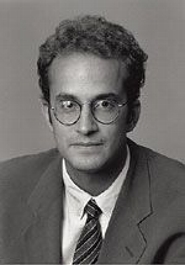
David LaGuardia, professor of French and comparative literature at Dartmouth College and Hamilton’s scholar in residence, will give a lecture “Two Queens, a Dog, and a Purloined Letter: on Memory as a Discursive Phenomenon in Late Renaissance France,” on Wednesday, Nov. 30, at 4:15 p.m., in KJ 102.
LaGuardia describes the talk as follows:
“Jeanne d’Albret (1528-1572), Queen of Navarra, and Catherine de Médicis (1519-1589), Queen Mother of France, were two of the most powerful women of the French Renaissance, and were largely responsible for leading the opposed Protestant and Catholic camps during the first Wars of Religion (1562-1570). As part of the negotiations involved in the proposed marriage of their children, Henri de Navarre (the future king Henri IV) and Marguerite de Valois in 1572, these two queens communicated with each other through diverse means: couriers, ambassadors, personal letters, rumors.
“Because of the difficult material conditions involved in the simple act of sending messages, these two women constantly misunderstood one another, at times willfully so. The hand-written and printed record of their correspondence details acts of communication within a broad discursive realm or ‘public sphere’ that was largely structured according to the necessity of recalling and remembering past negotiations, insults, misunderstandings, conflicts and violence, within the larger context of religious violence in which remembering was often literally interdicted by royal decrees.
“This lecture will focus on a particularly contentious exchange between these two powerful women in which a ‘purloined’ letter written by Catherine de Médicis to Philip II, the King of Spain, is suddenly found in the chambers of Jeanne d’Albret, leading to a lengthy discussion that reveals a great deal about practices of traveling, lodging, communication, public speaking, collective scenes of reading and writing, and the conception of memory and remembering within a public discursive realm.”
The lecture, sponsored by the Dean of Faculty’s office, is free and open to the public.
Posted November 29, 2011
